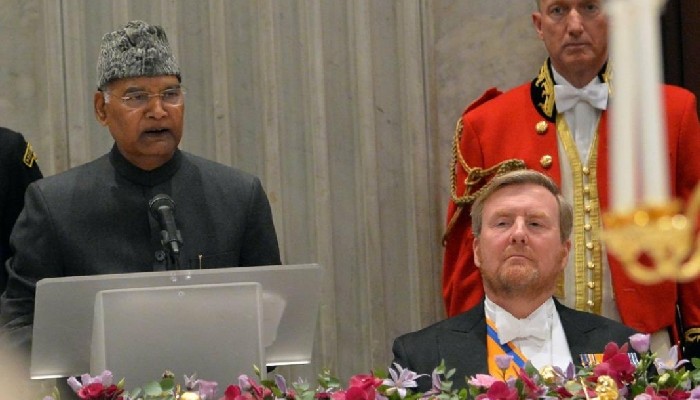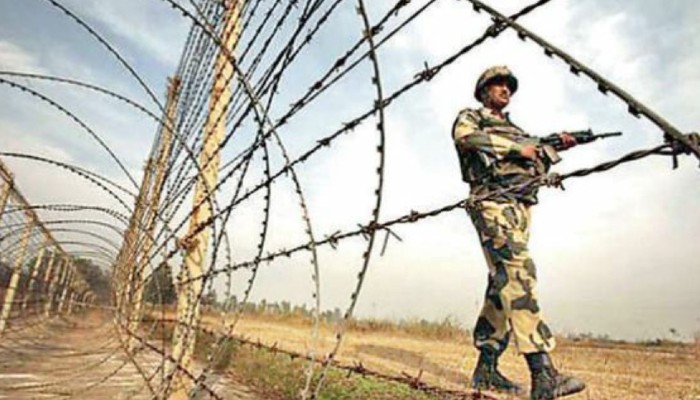Known as 'traam' in local parlance, copper is an indispensable part of Kashmiri lives
Owing to its beauty and distinct features, copper has a unique significance in the socio-cultural and traditional milieu of Kashmir. Be it a wedding, an auspicious occasion or day-to-day events, copper utensils and other items are the most preferred gifts and serving dishes.
Known as 'traam' in local parlance, copper is an indispensable part of Kashmiri lives.
Traditionally, so far, only utensils were made of copper, but now coppersmiths are coming up with innovative ways to keep the business going.
Muhammad Aslam, a resident of the Khanaka area of Srinagar city, has adopted a unique method to blend modernity with tradition in this work. Instead of working on creating traditional utensils, he started making bangles, flowers, boats and other decorative items out of copper.
This effort of Aslam is getting all the praise, from different parts of the UT, for his innovative ideas.
Aslam, who has been involved in this work for nearly three decades now, said, "My father also used to work with copper but I took a different approach to make this work popular. Though I continue working on the traditional style side by side, this is bringing me a different comfort".
"I can make any kind of image in copper. I can make whatever you want. I work as per demand. In the past, orders used to come from all over the country, but now they have started to pour in from foreign countries," he added.
Aslam feels that the trade has suffered a lot during the past few years due to the pandemic and the prevailing conditions in the Valley.
"You know the state of the economy at the moment. The way people used to shop, they don't do it anymore. People have a limited budget these days which is affecting our work," he argued.
Aslam has participated in different craft exhibitions, be it in Jammu and Kashmir or outside. "I got a lot of appreciation and praise but that didn't bring any surge in income," he noted. He also delivers talks. So far, he has addressed seminars in Pune, Bangalore, Hyderabad, Mumbai and Telangana.
Aslam began to innovate when he got in touch with a designer.
"He asked me to come up with new designs and products. When I began the work, I faced a lot of criticism from my own people. I was being asked what am I doing but soon after I received my first order, from Noida, people began to show their belief in me," he recalls.
Aslam has received an overwhelming response for his copper lamp shades.
"We receive a lot of support and encouragement for our orders and new designs through the ‘Commitment to Kashmir’ (CtoK) project under the support of Laila Tyabji, head of ‘Dastkar’, and others who have played a great role in revival of traditional crafts,” he said.
Although Aslam is associated with the Craft Development Institute, the National Institute of Fashion Technology and other institutions for the innovation and revival of the art, he is yet to be honored by the state or central government.
"Administration and my friends suggested that I apply for the awards but I never got time to do that owing to my busy schedule. I think promoting this art and successful innovation is my actual award," he said.
Aslam is training youth in different institutions and believes that the future will be golden for this art together with his and the government's efforts. The administration is also considering giving stipends to both the teacher and the students which Aslam thinks is a welcome step.
According to Shahid, a seller of copperware in the old city in Srinagar, his sales increased by almost 30 percent over the past one year. "Yes, initially business was hit badly by the pandemic but by and by the sales began to boost," he said.
While quoting health experts, Shahid said one more reason behind the increase in sales is that the use of copper utensils for cooking and eating helps increase immunity and minimizes cancer risks.
Dr Nazir Ahmad Khan, a physician said eating and drinking water in copper utensils boosts digestion. "It detoxifies our body by killing bad bacteria in our body and flushing out toxins. It improves digestion and other ailments of the stomach," he explained.
Covid-19 also has proved to be a boon for the traders for they had to customize small tream and sarposh (usually wazwan is served in a big plate called as tream which is covered by sarposh -- a copper lid which is shared by four people).
"During peak seasons of wedding in Kashmir during Covid-19, the doctors insisted on maintaining social distancing. As such the wazwan was served individually in copper plates which had distinct and unique engravings on them - known as Kandkari work locally," Nizaam Din, another businessman, maintained.
He said they would work round the clock to get these plates done, which definitely was a blessing in disguise for the copper traders.
If we talk of the making of a copper item, it has to pass through many hands and processes before you are handed over the final product
"Each one involved in it is specialized in each segment of the process. The process involves techniques like Naqash – the engraver, Zarcod – the gilder, Roshangar – the polisher and Charakgar – the cleaner or finisher," Aslam explains.
The tools used in the process are, Draz (hammer), Mekh (stakes) Yandrewah (anvil), compass, chisels, punches, and files.
History has it that Sufi Saint and Islamic scholar Mir Syed Ali Hamdani (RA), who traveled from Central Asia, was instrumental in making copper popular among the natives. He brought craftsmen from central Asia (especially from Persia) to train locals. However, during the reign of Budshah Zain-ul- Abideen (King of Kashmir), this craft received good support and the ruler became the active catalyst and pioneer to restore the grandeur of the craft.
 Contact Us
Contact Us  Subscribe Us
Subscribe Us









 Contact Us
Contact Us
 Subscribe
Subscribe
 News Letter
News Letter

